Deconstructing the Amul Marketing Strategy

Amul is a household name that owes its grand success to several factors, such as strict hygiene standards, good-quality products, product diversification, and most importantly, its effective marketing strategies. In fact, Amul became a model to be followed during the White Revolution in India. We are all familiar with the phrase “Utterly Butterly Delicious,” and no one can even forget the face of the Amul Girl. There are many factors that contribute to the success of the Amul marketing strategy.
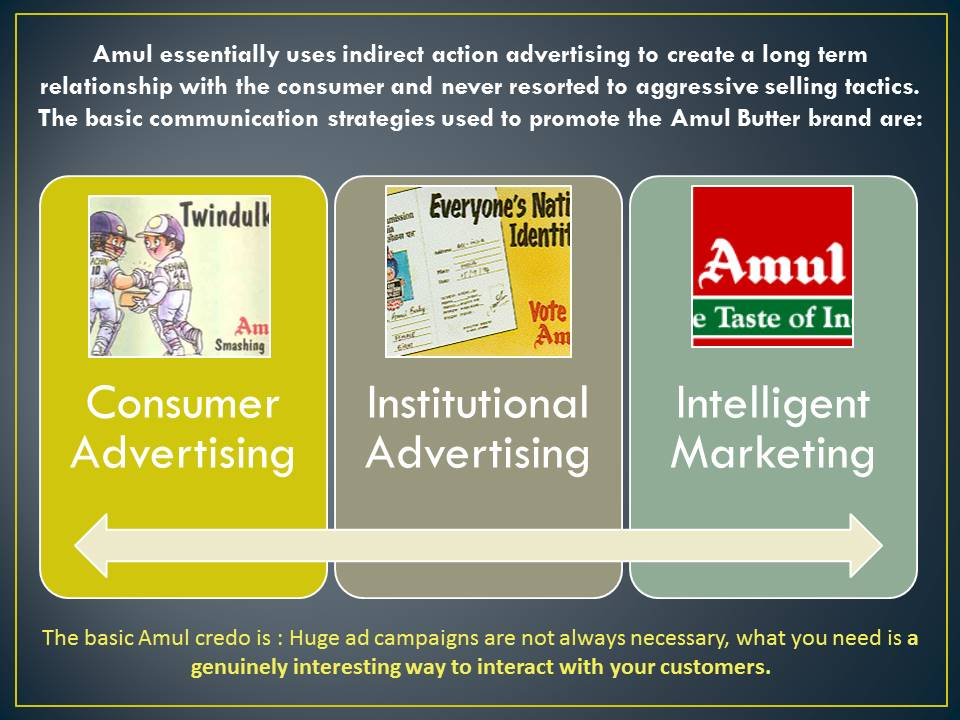
Amul not only became a marketing success, but it also successfully established a human connection with its customers. Founded in 1946, Amul was born out of response to the exploitation of marginalized dairy workers by agents and middlemen. With time, Amul, which was started as a movement, rose to become the largest milk cooperative in India. Today, Amul has great expertise in the dairy segment. It has earned recognition not just in India, but all over the world, as a global dairy brand. In this blog, we take a look at the factors that make the marketing strategy of Amul an example to be followed.
The Amul Marketing Strategy: 8 Factors That Contribute to its Success
Here are some important aspects of Amul’s successful marketing. Let’s take a quick look!
1. Amul’s mascot
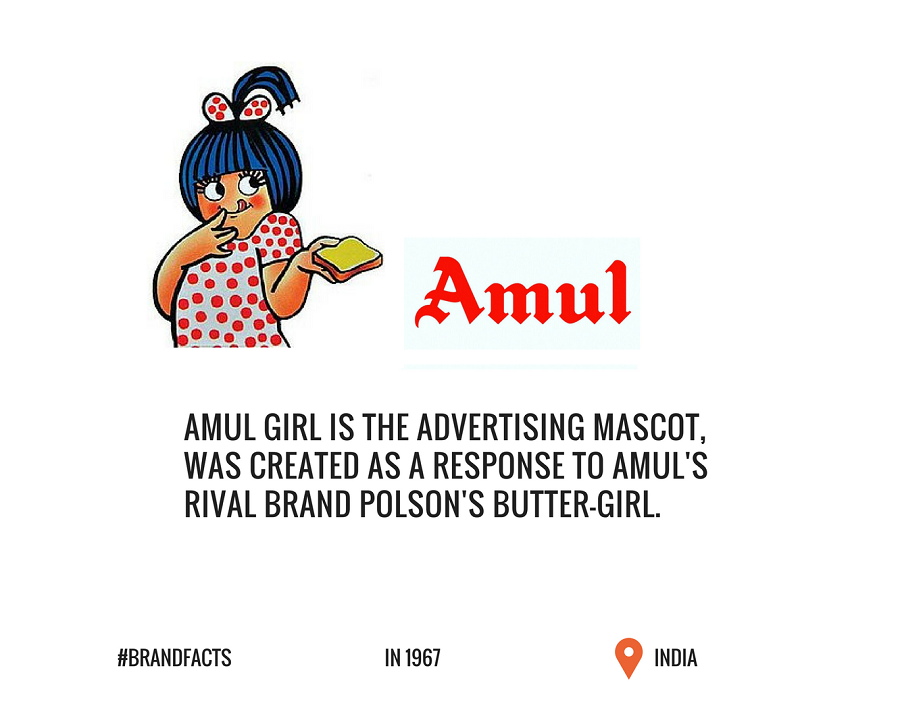
The popular face of the brand, also known as the Amul Girl, is someone we all recognize in an instant. She is the official mascot of the brand. The Amul Girl has been an intrinsic part of Amul’s business strategy throughout the years. She is a cartoon, dressed in a polka-dotted frock, with bluish hair tied up in a half pony. The Amul Girl is a mainstay of most of its marketing strategies.
2. Its brand image as “The Taste of India”
Amul’s tagline is a remarkable marketing effort on the part of the brand. It is what made the brand extremely popular in its initial days. Portraying the brand as a representation of India also helped Amul forge deep ties with the Indian audience.
3. The longest-running ad campaign
Amul has its name in the Guinness Book of World Records for running the longest ad campaign ever. Amul Girl has been the face of the brand for more than 39 years,
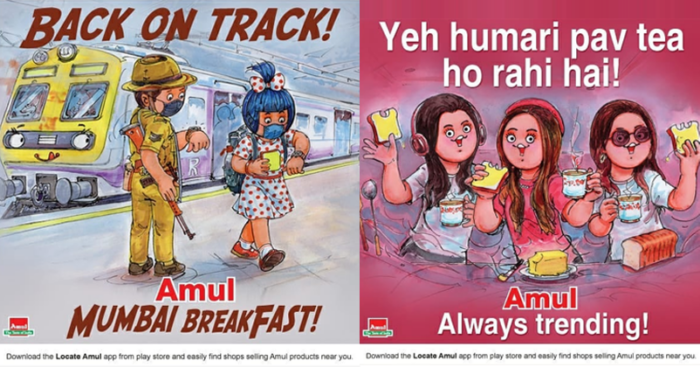
without any change. The brand relentlessly works towards combining topical issues and current affairs with its products, especially butter, in the form of comic-style pieces.
4. Target audience segmentation
Amul does not have premium offerings. It, instead, focuses solely on the mass market. On a customer-wise targeting structure, Amul’s products can be categorized under three broad labels, which are as follows:
- Kids: Amul Kool and Amul Pro Kids
- Youth: Amul cheese spread and Amul milk
- Health-conscious customers: Amul Shakti and Amul Lite
5. Low-cost products
One of the best features of the Amul marketing strategy is its low product pricing. Its pricing strategy caters to the daily consumption habits of the average Indian consumer. This makes Amul’s products, such as butter, milk, ghee, curd, and more, affordable. The brand increases the price of its products, as per the increase in the audience’s income. This helps Amul in retaining its customer base skillfully. High-quality dairy products at low prices: what more would the consumer want?
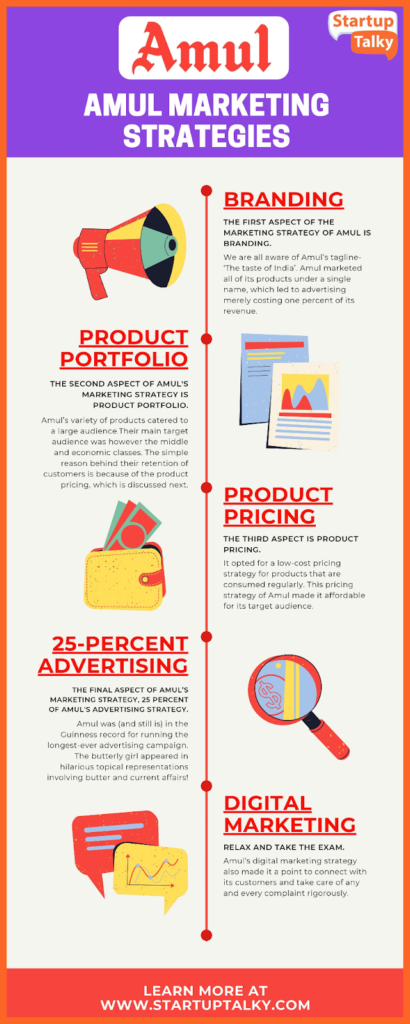
6. Digital marketing efforts
Albeit an old brand, Amul has not limited its efforts to the traditional style of marketing and advertising. It has expanded into the digital arena and advertised its products via Facebook, Twitter, and Instagram. Amul connects with its customers online and even resolves their queries and complaints through these platforms. Nowadays, Amul seems to be focusing more on revamping its ideas for the digital medium.
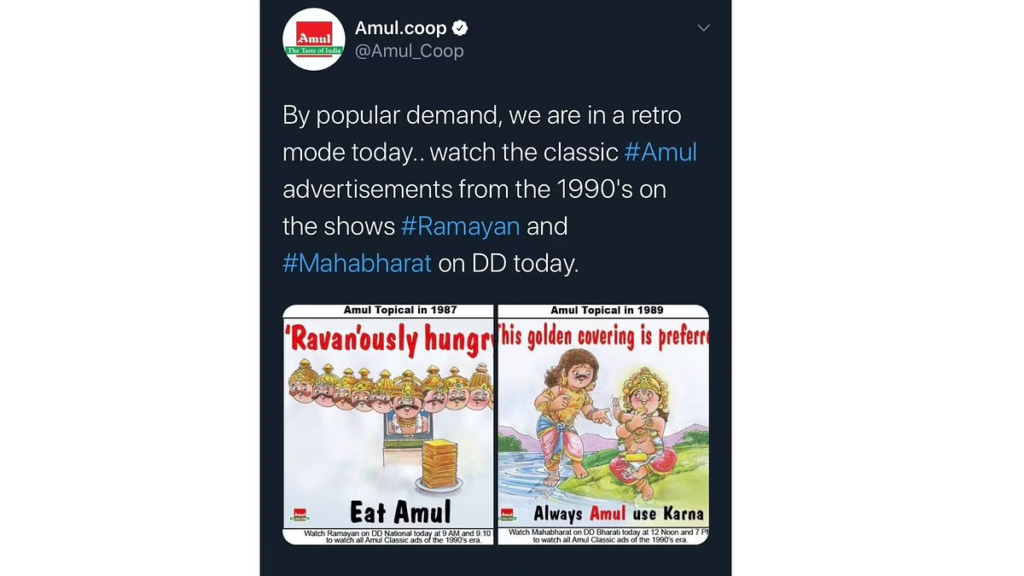
Apart from Facebook and Instagram, Amul has a massive fan base on Twitter.
It has stood the test of time and evolved with the changing landscape of marketing. Customers Retweet the Amul Girl graphics, and Amul makes sure to notice and engage with them. It also constantly conducts giveaways and contests on Twitter. Not only this, but Amul also solves customer grievances on social media in a timely and sophisticated manner.
7. Diverse product portfolio
One of the most crucial aspects of Amul’s business strategy is its product portfolio. The brand offers a wide variety of products, thereby catering to the needs of a large audience. While their primary customer base comprises the middle class, Amul has something in store for everyone. It enjoys dominance over different customer segments.
8. Marketing mix
The marketing mix is the combination of factors a company can control in order to influence its customers to purchase its products and services. It usually includes the four Ps: product, price, place, and promotion.
- Product
Amul offers the widest range of dairy products, including ghee, butter, milk, chocolates, cheese, sweets, milk powder, ice cream, yogurt, buttermilk, bread spreads, etc. The quality, as well as the taste of Amul eatables, is unparalleled.
- Pricing
Amul enjoys the reputation of being an affordable dairy brand. While the rates offered by other FMCG brands have fluctuated massively with the waves of inflation, Amul has managed to keep its prices in tune with people’s expectations. Over time, this has made Amul a trusted choice for dairy products.
- Place
Owing to its massive and well-managed distribution channel, Amul has gained popularity all over the country. Amul products enjoy a pan-India distribution. The brand manages this through the two channels of acquisition and distribution. Amul also has its own showrooms and has expanded into eCommerce and omnichannel retail as well.
In addition, it has thousands of exclusive distributors, who enjoy a lucrative ROI. Owing to its robust marketing and distribution strategies, Amul managed to launch a range of new products in 2021, despite the COVID-19 pandemic.
- Promotion
Amul takes timely digs at important international and national as well as global issues. These topical ads are well-designed, and they convey the message in humorous and witty ways.
Affordable and good-quality products, innovative promotional methods, and sincerity towards customers are what have contributed to the success of Amul’s marketing strategy. It has undoubtedly reached every corner of the country. In addition, Amul’s topical ads are extremely relevant and likable, and its catchy ad copy allows the brand to be etched in the audience’s minds.

FAQs
Amul operates according to the oligopoly market type. Usually, the dairy industry follows the principles of oligopoly, implying that they sell the same products and there is no or the least amount of product differentiation.
Amul functions according to the cooperative society model. As per this model, people come together to pool resources, thereby growing the market. The finances, resources, and operations are all taken care of by the members of the cooperative society.
Amul is an abbreviation of Anand Milk Union Limited.
Amul’s product mix entails a wide variety of dairy products, such as cheese, milk, ghee, butter, curd, milk powders, flavored milk beverages, paneer, flavored yogurt, and more.
Amul’s business model relies on offering value-for-money goods to its customers. This is executed in the form of providing its customers with quality products at competitive prices.
Latest Blogs
Learn how to rank on AI search engines like ChatGPT, Perplexity, and Gemini by optimizing your content for authority, structure, and relevance. Stay ahead in AI-driven search with this strategic guide.
Explore the best healthcare SEO services for your medical practice. Improve online visibility and effectively reach more patients in need of your services.
Discover top social media agencies specializing in banking solutions, enhancing financial services and driving engagement.
Get your hands on the latest news!
Similar Posts

Content Marketing
5 mins read
Top 10 Financial Marketing Agencies to Help Your Business Succeed

Content Creation
5 mins read
AI for Marketers Unlocking Smarter Strategies for Content Creation

Content Marketing Strategy
6 mins read